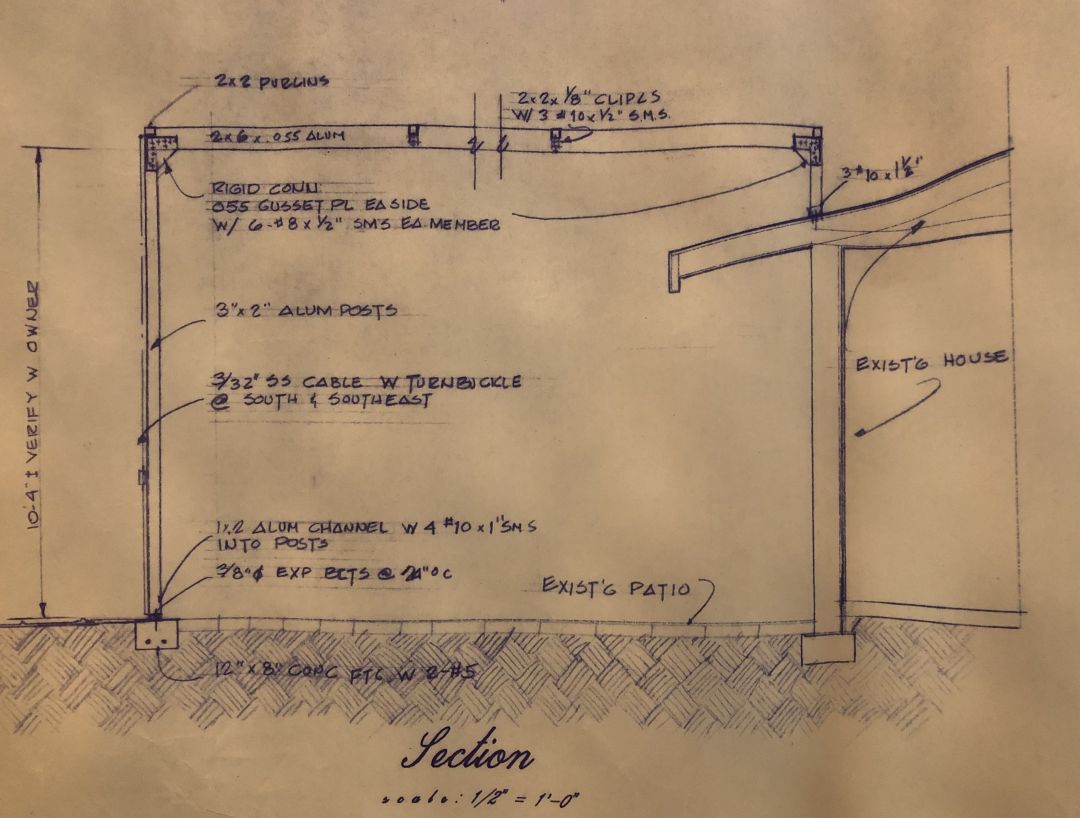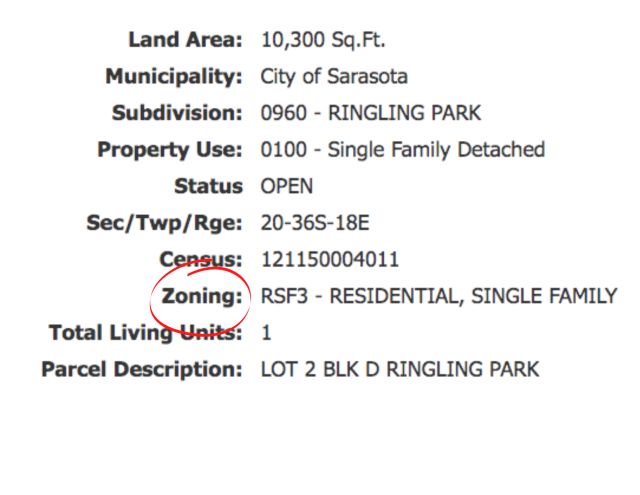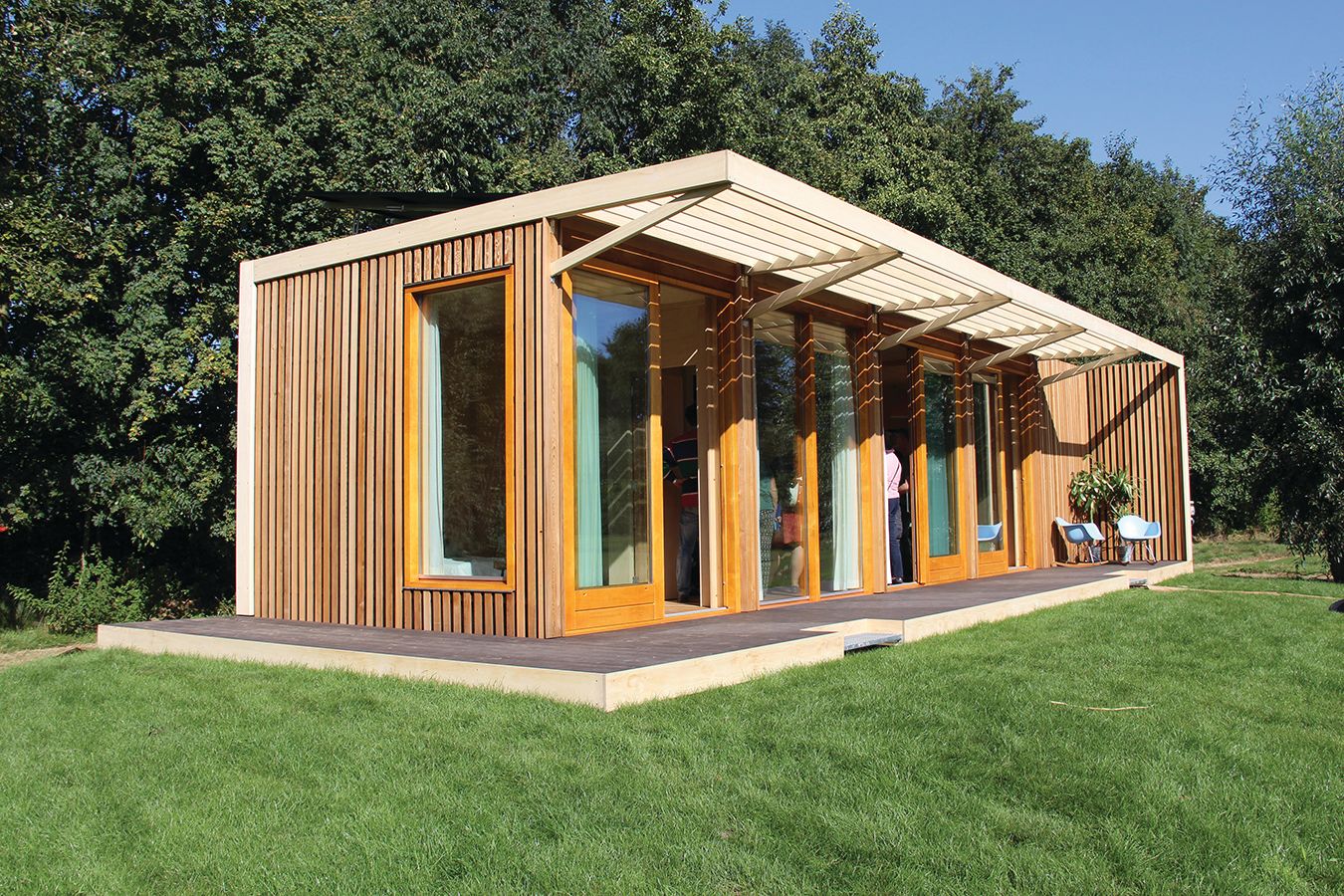Here's How to Avoid Common Sarasota Zoning Pitfalls

Many City of Sarasota zoning codes were defined in 1974, and while they have evolved, some homeowners and shoppers encounter pitfalls when it comes time to renovate or build new.
Image: Kim Doleatto
It was easy to dream but harder to build on a more-than-10,000-square-foot lot in Ringling Park. My mom thought she could finally add that third bedroom—but because the neighborhood zoning only allows for 25 percent of the property lot to be covered, she learned that she’d have to lose her deck to make it happen.
It’s not an uncommon discovery for homeowners. With the rise of the home office and a refocus on turning your house into an all-around oasis, homeowners are learning about what they can and can’t do to their homes the hard way.
Maybe you’ve owned your home for years, and didn’t know you’d want to build an add-on until years later. Maybe rules have changed since you purchased. For home shoppers, getting a survey done before committing to purchasing a home is the surest way to learn about its limitations, but can be too time intensive for the current low-inventory housing market, in which the average time a home is listed in the City of Sarasota is just 11 days.
And beware, home shoppers: real estate agents are not responsible for knowing the details of a home’s zoning, so it’s up to you to investigate. Find an address's zoning on the Sarasota County appraiser's website, and get the lowdown on what it means by calling to speak with someone from the City of Sarasota zoning department.
Mary Mnish, City of Sarasota senior zoning analyst, shares some homeowners' top pitfalls when it comes to residential building regulations.

Zoning codes are listed on the Sarasota County appraiser's website, and are easiest to decode with the help from the zoning department.
Image: City of Sarasota
Home footprint
In some residential single-family home neighborhoods, the home can cover just 25 percent of the lot’s square footage. So adding a room to the home may have to come at the expense of shaving off something else to stay within those limits, unless building up is allowed.
The often-secret second unit
Some homes listed for sale boast two living units when, in fact, that second unit is not permitted in that building zone. As a result, some homeowners are forced to dismantle the kitchen portion of the second, smaller unit, and create an entryway connecting it to the main home so that the whole area can be defined as a residential, single-family home.
Grandfathered in
Most of the City of Sarasota’s building zones were mapped out in 1974. If a homeowner’s plans don’t conform to the current code, but the home was built before that year, the homeowner gets to keep things as they are, providing evidence. For example, that mother-in-law unit that turned your single-family home into two living units can stay if it was built before 1974.
Adding a second dwelling to your home
These are called "accessory dwelling units" in city zoning speak, and are a hot topic in certain neighborhoods like Arlington Park, where some residents feel high density will be a detriment to the character of the neighborhood. Supporters feel that it’s a solution for the dearth in affordable housing and allows homeowners to earn passive income from their property. It’s also an opportunity for multi-generational families to live together on one lot. Some neighborhoods, like Gillespie Park, allow them today. The City of Sarasota will hold its second meeting to consider expanding accessory dwelling units on July 20.
Flood zones
Many Sarasota properties are in a flood zone, and there are restrictions on the amount of changes you can make to a home that's not elevated. If the cost of renovating a home in a flood zone exceeds 50 percent of its market value, it must be brought up to current flood zone regulations, which often requires elevation.
Parking woes
For every living unit built in the city, the homeowner must provide a dedicated parking spot. In some zones, guests can’t park on the street and recreational vehicles and boats are not allowed in open, residential driveways.
Live-work spaces
In some zones near the downtown core, live-work spaces can vary slightly depending on what side of the street the property is on. Other regulations might require the owner to live on the property, prohibit business signs and limit the type of business that can operate there.
My mom ended up having to rip up the deck to get that extra bedroom added to her home, costing thousands of dollars more than she had accounted for, and adding time to an already long process. Still, though she has a dash of planner's remorse, the home will fetch more on the market when she chooses to list it.
Call the City of Sarasota zoning department at )941) 263-6432 or email CityZoning@SarasotaFL.gov to stay in the know.



